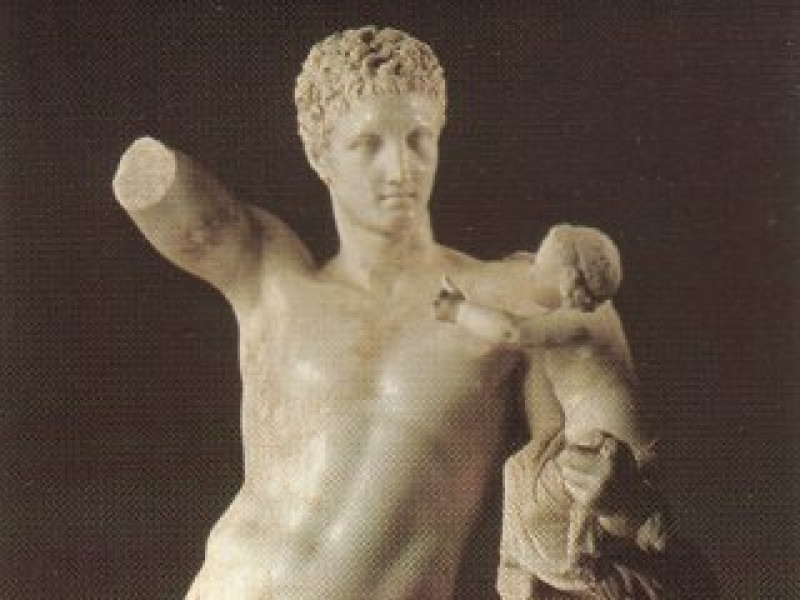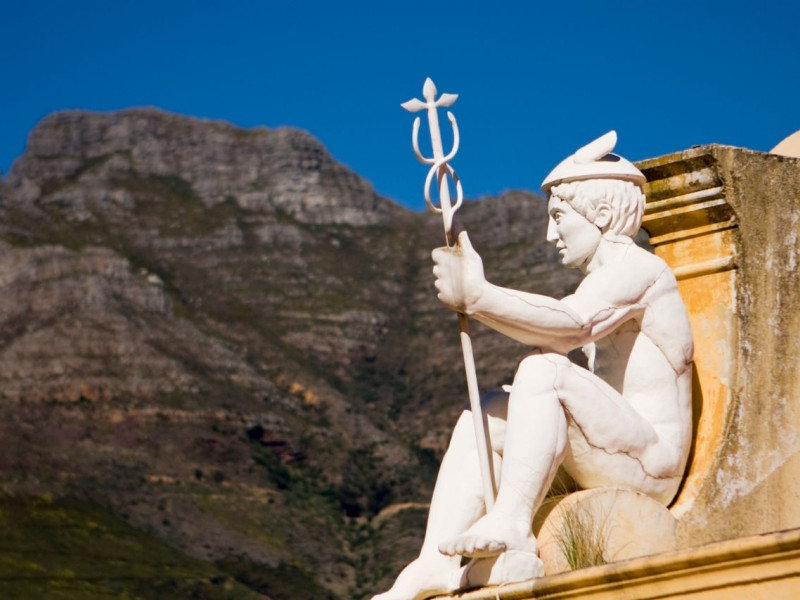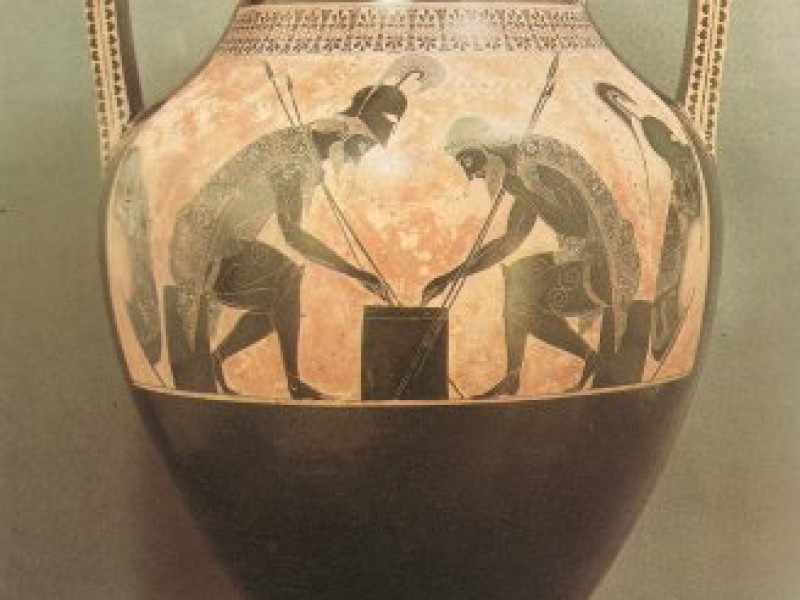Autolycus
Autolycus was not a hero, but a famous master thief in classical mythology, known for his cunning and craftiness. But before I begin the tale of Autolycus, I would first like to tell of his lovely mother, Chione.
Chione
According to the Roman poet Ovid, the hero Peleus sought refuge in Trachis, the kingdom of King Ceyx. Ceyx, still anguished with grief, told the hero of what happened to his brother Daedalion.
Daedalion was the son of Eosphorus, the "Dawn Bringer" or the Roman equivalent of Lucifer, "Light Bringer"; both names referred to the "Morning Star", hence Venus. Daedalion was a fierce warrior and was the father of Chione (Χιόνη).
Chione grew into a very beautiful maiden that by the age of 14 already had a thousand suitors.
One day, two gods, Apollo and Hermes, saw and fell in love with the young maiden. Both gods decided to ravish the same girl. Apollo decided to wait a night before he seduced her. Hermes, who was impatient, wouldn't wait a moment longer, so he didn't wait for nightfall. Hermes cast a spell on her to put her asleep, before he raped her. At night, Apollo disguised himself as an old woman, which the unsuspecting maiden allowed into her home. At once, Apollo threw off his disguise and ravished her.
From that day, Chione conceived twins to the two gods. To Hermes, she bore Autolycus, the master thief who had inherited his father's cunning and skill in thievery. To Apollo, she had another son named Philammon who was gifted in singing and playing the musical instrument cithera.
Yet, despite being loved by two gods, Chione allowed her vanity to speak and she insulted Apollo's sister by claiming that her beauty surpassed Artemis. Artemis immediately responded by shooting her arrow which ripped off her offensive tongue. She bled to death.
Ceyx had unsuccessfully tried to comfort his brother. Daedalion saw his daughter's pyre burning, and the distraught father tried to throw himself into the flame several times but he was driven back by Ceyx's warriors. Daedalion ran off into the forest. Driven mad by his despair and grief, Daedalion threw himself off a cliff. Apollo, taking pity on Daedalion, transformed the falling father into a fierce hawk.
The Master Thief
Autolycus was the son of the god Hermes and Chione. Autolycus was the half-brother of his twin, Philammon. Autolycus married either Mestra, the daughter of Erysichthon, or Neaera, the daughter of Pereus. Autolycus became the father of Anticleia and probably of Polymede, the wife of Aeson and mother of Jason.
Unlike his brother who was a poet and musician, Autolycus was a thief by trade. Autolycus was also famous for his cunning and resourcefulness. Probably a gift from his father (Hermes), Autolycus had the ability to change the colour or shape of his stolen property.
Autolycus was responsible for stealing the helmet of Amyntor, the son of Ormenus and the king of Eleon, near Mount Pelion. Amyntor was one of the hunters of the Calydonian Boar. The helmet passed on to several people before Odysseus, his grandson, received the helmet from the Meriones, a Cretan warrior in the Trojan War. Autolycus had given the helmet to Amphidamas of Cythera, who gave it to Molus. Meriones inherited the helm from his father.
According to Apollodorus, Autolycus taught Heracles how to wrestle, and he had also listed the thief as one of the Argonauts. Heracles was falsely blamed for the stolen cattle of Eurytus. Iphitus, Eurytus' son, did not believe his father's accusation against the hero, so he tried to help Heracles in recovering the cattle stolen by Autolycus. Once again, Hera inflicted madness on Heracles, who murdered Iphitus.
However, Autolycus met his match in cunning from Sisyphus, the king of Ephyre (Corinth), reputedly the shrewdest mortal in the world. Autolycus frequently stole the cattle of Sisyphus by changing the colour of the cattle. Though Sisyphus suspected that Autolycus was the one who was stealing his cattle, he couldn't prove this. So Sisyphus decided to mark the hoofs on all of his cattle. Only then was Sisyphus able to prove that Autolycus was the thief. Sisyphus not only recovered his cattle, but to punish Autolycus further, Sisyphus raped Anticleia, Autolycus' daughter. It is generally believed that Sisyphus was Odysseus' real biological father, not Laertes who was the husband of Anticleia.
According to the Odyssey, when Odysseus was born, the nurse Euryclea placed the infant on aging Autolycus' laps, so it was Autolycus who named his grandson - Odysseus. Autolycus was said to have a number of sons who took Odysseus hunting near Mount Parnassus. Odysseus was wounded by a wild boar that he killed, and the young hero bore a permanent scar on his thigh. See Guest and Old Scar in the Odyssey.
There are no records on how Autolycus died, but judging by Homer's Odyssey, it's more than likely that the master thief died of ripe old age.
Related Information
Name
Autolycus, Autolycos, Αὐτόλυκος.
Sources
Metamorphoses was written by Ovid.
Library was written by Apollodorus.
Fabulae was written by Hyginus.
The Iliad and the Odyssey were written by Homer.
Contents
Related Articles
Hermes, Mestra, Erysichthon, Odysseus, Sisyphus, Apollo, Ceyx, Peleus.
Genealogy: House of Odysseus.
By Jimmy Joe





